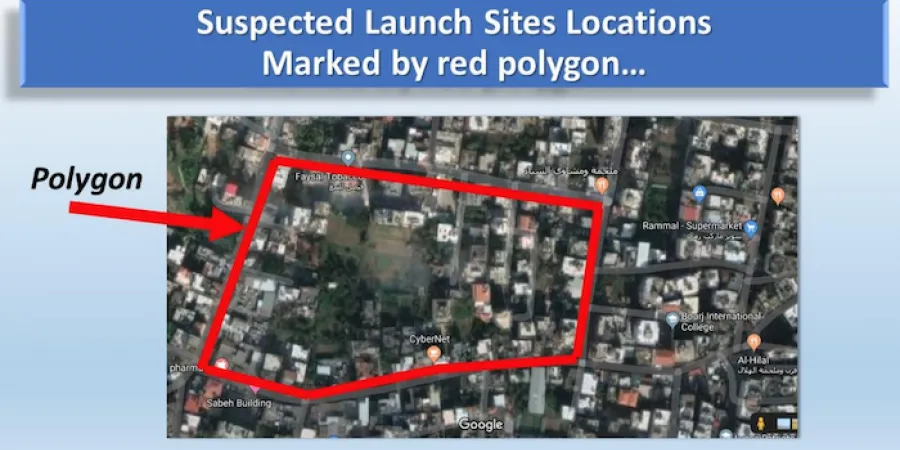Hezbollah Has Nearly 30 Missile-Related Sites in Civilian Areas of Beirut: Report
The locations were said to have been posted on the Wikimapia collaborative mapping site by unknown sources sometime in 2018
IsraelDefense
|
15/07/2020
An Israeli research center said in a report issued Wednesday that it has identified 28 sites in the Lebanese capital that Hezbollah is using for the launch, storage and production of missiles.
The Alma Research and Education Center said the findings were the result of its project to identify such sites in civilian structures and in the proximity of densely populated areas in Lebanon. The sites were located using data from Wikimapia, an online collaborative mapping initiative.
The report pointed out that the terrorist organization stores weapons in populated areas throughout Lebanon, with the highest concentration in the capital city of Beirut, the Beqaa Valley and in the south. Hezbollah plans to launch these weapons toward civilian targets and population centers in Israel from within or adjacent to residential buildings, believing that this tactic will shield them from IDF counterattacks, it said.
According to the report, sometime in 2018 unknown sources uploaded a number of locations onto the Wikimapia map marked as Fateh 110 missile launch sites and associated infrastructure.
"Based on the information revealed on Wikimapia, the Alma Center developed a database of 28 sites related to the launch, storage and production of Hezbollah's medium range Fateh 110/M600 missiles," the report said. "The Fateh 110’s destructive range is up to 300 km or 186 miles, while improved models called “D' Al-Ficar” have an even further range of up to 700 km or 435 miles."
Almost all of the sites are in Hezbollah-controlled southern Beirut "in civilian neighborhoods, inside private houses, medical centers, churches, industrial sites, public offices, fast food chains, as well as in open spaces nearby," the report noted.
The locations were said to have been posted on the Wikimapia collaborative mapping site by unknown sources sometime in 2018
An Israeli research center said in a report issued Wednesday that it has identified 28 sites in the Lebanese capital that Hezbollah is using for the launch, storage and production of missiles.
The Alma Research and Education Center said the findings were the result of its project to identify such sites in civilian structures and in the proximity of densely populated areas in Lebanon. The sites were located using data from Wikimapia, an online collaborative mapping initiative.
The report pointed out that the terrorist organization stores weapons in populated areas throughout Lebanon, with the highest concentration in the capital city of Beirut, the Beqaa Valley and in the south. Hezbollah plans to launch these weapons toward civilian targets and population centers in Israel from within or adjacent to residential buildings, believing that this tactic will shield them from IDF counterattacks, it said.
According to the report, sometime in 2018 unknown sources uploaded a number of locations onto the Wikimapia map marked as Fateh 110 missile launch sites and associated infrastructure.
"Based on the information revealed on Wikimapia, the Alma Center developed a database of 28 sites related to the launch, storage and production of Hezbollah's medium range Fateh 110/M600 missiles," the report said. "The Fateh 110’s destructive range is up to 300 km or 186 miles, while improved models called “D' Al-Ficar” have an even further range of up to 700 km or 435 miles."
Almost all of the sites are in Hezbollah-controlled southern Beirut "in civilian neighborhoods, inside private houses, medical centers, churches, industrial sites, public offices, fast food chains, as well as in open spaces nearby," the report noted.



